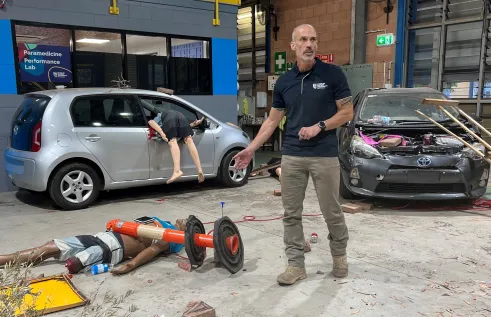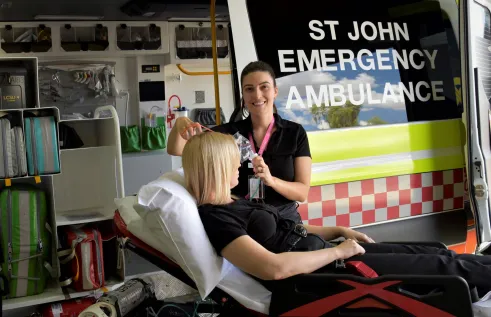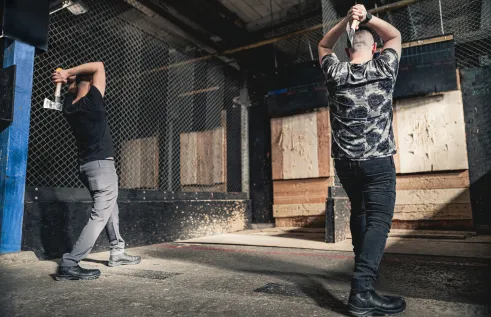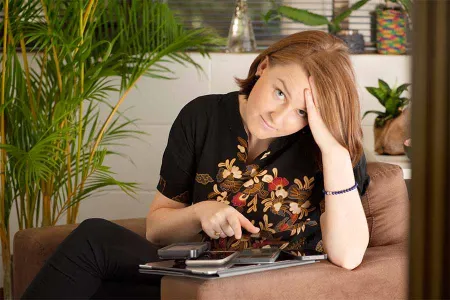NEWS ARTICLE
‘Look beyond Facebook’ this cyclone, bushfire season
Social media may be lulling Australians into a false sense of safety around disasters and emergencies, a Charles Darwin University researcher warns.
Associate Lecturer in Psychology Katelyn Rossiter is completing a PhD at CDU’s College of Health and Human Sciences and is investigating the effects of social media on disaster preparedness.
This research is taking place under the College’s new research centre, the Australasian Centre for Resilience Implementation for Sustainable Communities.
Mrs Rossiter said research showed people tended to rely on social media during times of emergency, rather than preparing early.
“Social media is a great way to stay informed about what is happening in your city and community, but there are limitations, especially when a major incident is unfolding,” she said.
“Social media information, even from official sources, is at risk of being disrupted by power and phone outages.
“Without alternative ways of accessing information, people may find themselves without up to date emergency warnings and advice.”
Mrs Rossiter said Facebook community groups and online forums were popular ways for people to find out what was happening in their local area.
“This information is often tailored to a local audience and community-driven, which makes it more interesting and engaging, but can result in conflicting or incorrect information being disseminated among users,” she said.
It can also lead to information overload during times of emergency.
“Our brains aren’t able to deal with so much information at once, which means our cognition and decision making can be impaired at a time when we need it the most.”
Mrs Rossiter, who has been interviewing community leaders, emergency service providers and community groups across Australia, the US and New Zealand, said there were many ways Territorians could prepare for emergencies.
“In the Territory, we are now facing the threat of cyclone and bushfire,” she said.
“To stay safe, there are many simple things people can do to prepare for an emergency that will complement social media if a disaster or incident occurs.”
Top tips include:
- Have a plan in place and make sure you have shared this plan with family, friends, and neighbours well before you receive official warnings. Tell them what you plan to do and where you plan to be, and what your back-up plan is.
- Make sure you have multiple ways to receive information during a disaster. Know your local emergency radio stations and have a battery-operated radio in your emergency kit. Also, have back-up power supplies for your mobile devices.
- Know which social media accounts are going to have the most up to date and reliable information. Follow local emergency management Facebook pages and websites such as Secure NT. Start following these accounts now to receive tips and advice on how to prepare.
- Avoid being a “disaster tourist”. A few minutes of Facebook or Instagram fame is not worth risking your life to get the perfect disaster photo.
Related Articles

CDU student paramedics tested in a simulated explosion
Charles Darwin University (CDU) paramedic students were put through their paces in a real-life scenario that included the sights and sounds they would expect while responding to emergencies.
Read more about CDU student paramedics tested in a simulated explosion
Award-winning paramedic shines at CDU Open Day
Working at the busy intersection of education, primary healthcare, emergency medical services and public health, Amy McCaffrey is an inspirational figure.
Read more about Award-winning paramedic shines at CDU Open Day
What happens to your body when you throw an axe?
With axe throwing growing and elite competition booming, a Charles Darwin University (CDU) sports scientist is looking at how the three most common throwing techniques impact the body.
Read more about What happens to your body when you throw an axe?
